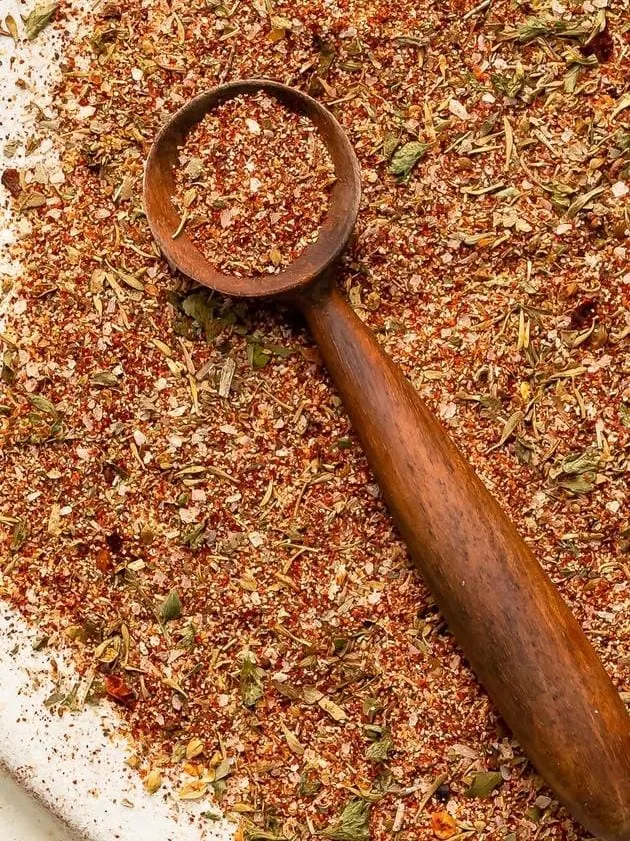Easy Homemade Ginger Tea Recipe: Immune-Boosting, Soothing & Pinterest-Friendly Guide
Ginger tea is a warm, aromatic beverage made from fresh or dried ginger root steeped in hot water, often complemented with natural sweeteners or spices. This timeless drink is celebrated for its soothing effects on digestion, immunity, and overall wellness.
Traditionally used in Asian and Ayurvedic medicine, ginger tea has been a staple for centuries due to its natural anti-inflammatory and antioxidant properties. It is more than just a beverage; it is a ritual that combines warmth, flavor, and therapeutic benefits in one comforting cup.

This homemade version of ginger tea allows complete control over flavor, sweetness, and strength. Unlike store-bought versions, which may contain preservatives or artificial flavors, making it at home ensures a fresh, pure, and more effective beverage.
The natural spiciness of ginger, combined with optional honey, lemon, or herbs, creates a multi-dimensional taste profile that is both invigorating and soothing. This guide provides exact ingredient quantities, step-by-step preparation, nutrient information, healthy habits, and creative variations, making it easy to incorporate ginger tea into daily routines.
Also read: Vanilla Coffee Syrup Recipe
Nutritional Overview and Health Benefits

Ginger tea is low in calories and naturally caffeine-free, making it an excellent choice for any time of day. Its primary ingredient, ginger root, contains bioactive compounds such as gingerol, which contribute to anti-inflammatory and antioxidant effects. These compounds support digestion, relieve nausea, and may enhance cardiovascular health.
Key nutrients and benefits include:
- Gingerol and Shogaol: Active compounds that reduce inflammation and oxidative stress.
- Vitamins: Small amounts of vitamin C from lemon or optional spices support immunity.
- Minerals: Potassium, magnesium, and manganese from ginger contribute to overall wellness.
- Antioxidants: Help combat free radicals, supporting cellular health.
- Hydration: As a hot water-based beverage, it contributes to daily fluid intake.
While ginger tea is not a substitute for medical treatment, its consistent consumption can complement a healthy lifestyle. Drinking it regularly may also improve digestion, reduce bloating, and promote relaxation, making it ideal for morning routines or evening wind-downs.
Also read: Immunity-Boosting Ginger Turmeric Shots

Main Ingredients and Exact Quantities (Yield: 2 Cups)

| Ingredient | Quantity | Role in the Recipe |
|---|---|---|
| Fresh Ginger Root | 2-inch piece (20–25 g) | Provides the characteristic spiciness and bioactive compounds for health benefits. |
| Water | 2 cups (480 ml) | Base for infusion; extracts flavor and nutrients from ginger. |
| Honey (optional) | 1–2 teaspoons (7–14 g) | Natural sweetener; adds subtle flavor and soothing effect for the throat. |
| Lemon Juice (optional) | 1 teaspoon (5 ml) | Adds tang, vitamin C, and brightens the flavor. |
| Cinnamon Stick or Ground Cinnamon (optional) | 1 small stick or 1/4 teaspoon | Adds warmth and complements the spiciness of ginger. |
| Fresh Mint Leaves (optional) | 3–4 leaves | Provides aroma and subtle cooling effect, enhancing overall taste. |
These quantities produce 2 cups of ginger tea, enough for two servings. The optional ingredients allow flexibility for sweetness, flavor depth, and health benefits. Adjusting ginger quantity will make the tea milder or stronger according to taste preference.
Also read: Mango Iced Tea Recipe
How to Prepare Homemade Ginger Tea (Step-by-Step Guide)

Step 1: Prepare the Ginger Root
Start by washing and peeling a 2-inch piece of fresh ginger. Use a spoon or peeler to remove the skin gently. Then slice the ginger thinly or crush slightly to maximize the surface area. Thin slices or lightly crushed ginger release more flavor and bioactive compounds during infusion, giving the tea a richer taste and stronger health benefits.
Step 2: Boil Water
Pour 2 cups (480 ml) of fresh water into a small saucepan and bring it to a rolling boil. Boiling water is essential to extract both flavor and beneficial compounds from the ginger. Avoid water that has been previously boiled, as fresh water provides the best oxygen content and taste.
Step 3: Steep the Ginger
Add the sliced or crushed ginger to the boiling water. Reduce the heat to low and let it simmer for 10–15 minutes. Longer steeping results in a stronger, spicier tea, while shorter times produce a milder, more subtle flavor. For a more concentrated tea, slightly mash the ginger while simmering to release additional juice and oils.
Step 4: Add Optional Ingredients
At this stage, add optional ingredients for flavor and health benefits: 1–2 teaspoons honey, 1 teaspoon lemon juice, a cinnamon stick, or fresh mint leaves. Stir gently to combine. Honey not only sweetens but soothes the throat; lemon brightens flavor and adds vitamin C; cinnamon enhances warmth and antioxidant content; mint contributes aroma and a cooling finish. Adjust each addition according to your taste preference.
Step 5: Strain and Serve
After steeping, remove from heat and strain the tea into cups using a fine mesh sieve. This separates the ginger slices and optional ingredients from the liquid. Serve immediately for maximum warmth, flavor, and therapeutic benefits. If desired, garnish with a thin slice of lemon or a sprig of mint for presentation and added aroma.

Step 6: Store and Reheat (Optional)
If you have leftover tea, store it in an airtight container in the refrigerator for up to 24 hours. Reheat gently over low heat or microwave briefly. Avoid boiling stored tea, as prolonged heating may reduce the potency of ginger’s bioactive compounds and alter flavor.
Healthy Habits When Drinking Ginger Tea
Ginger tea can be incorporated into daily routines as a soothing, natural wellness booster. Some healthy habits include:

- Drink it in moderation: 1–2 cups per day provide benefits without excessive spiciness.
- Morning or evening routine: Helps digestion in the morning or relaxes the body in the evening.
- Use natural sweeteners: Honey or maple syrup is preferable to refined sugar.
- Combine with mindfulness: Sip slowly, focusing on warmth and aroma to reduce stress.
- Complement meals: Ginger tea aids digestion and balances heavy or spicy foods.
- Hydration: Add to overall fluid intake, especially in cold seasons to maintain hydration.
- Avoid excess honey: Over-sweetening may counteract health benefits.
These habits maximize both the therapeutic benefits and enjoyment of ginger tea while keeping it a healthy daily ritual.
Variations of Homemade Ginger Tea
1. Lemon and Honey Ginger Tea
Lemon and honey enhance the natural spiciness of ginger and add extra vitamins. Add 1 teaspoon of lemon juice and 1–2 teaspoons of honey to hot ginger tea after steeping. Stir gently to dissolve the honey. This variation is excellent for soothing a sore throat, boosting immunity, and adding natural sweetness without refined sugar.
The combination of lemon, honey, and ginger supports digestion, promotes hydration, and improves overall flavor. Serve warm for a comforting morning drink or afternoon pick-me-up. Adjust sweetness and tanginess according to personal preference for a perfect balance in each cup.
2. Cinnamon-Infused Ginger Tea
Adding cinnamon to ginger tea introduces warmth and subtle sweetness. Place a small cinnamon stick in the water while boiling the ginger or add 1/4 teaspoon ground cinnamon after straining. Simmer together for 5–10 minutes to allow the flavors to blend thoroughly. Cinnamon’s natural antioxidants and anti-inflammatory properties complement ginger’s benefits, making this tea a wellness powerhouse.
This variation pairs beautifully with honey and lemon for a layered flavor profile. The aroma of cinnamon with ginger creates a comforting and inviting beverage. Ideal for chilly days, this tea can also support metabolic health and provide a natural warming effect to the body.
3. Mint Ginger Tea
Mint adds a cooling, refreshing note to the spicy warmth of ginger. Add 3–4 fresh mint leaves during simmering or after removing the tea from heat. Let the leaves steep for 3–5 minutes for a subtle aroma and refreshing taste. Mint promotes digestion and freshens breath while balancing the intensity of ginger.
Combine with honey or lemon for a versatile flavor combination. This variation is perfect for hot or humid weather, providing both soothing and cooling effects. Mint ginger tea can be served hot or chilled as a refreshing summer beverage while maintaining its digestive benefits.
4. Turmeric Ginger Tea
Turmeric adds earthy flavor and anti-inflammatory benefits. Add 1/2 teaspoon of ground turmeric or a small piece of fresh turmeric root to the boiling water along with ginger. Simmer together for 10 minutes. Turmeric enhances antioxidant properties and supports joint and immune health.
Pair with black pepper for enhanced absorption of curcumin, the active compound in turmeric. This tea variation is rich in color and flavor, ideal for wellness-focused routines. Sweeten lightly with honey to balance the earthy notes. This combination has become a trending herbal drink on Pinterest and wellness blogs.
5. Spiced Ginger Chai Tea
Blend traditional chai spices like cardamom, cloves, and black pepper with ginger for a spiced tea. Add 2–3 crushed cardamom pods, 2–3 cloves, and a pinch of black pepper while boiling ginger. Steep for 10–15 minutes and strain before serving. Spiced chai ginger tea adds depth, warmth, and a comforting aroma.
Serve with honey or milk for a creamy twist. This variation is ideal for those who enjoy robust flavors and want an immunity-boosting beverage with layered spices. It combines traditional Indian chai techniques with the health benefits of ginger, creating a flavorful, trending herbal drink.
History and Cultural Context of Ginger Tea
Ginger tea has origins in traditional Asian medicine, particularly in China and India, where it has been used for centuries to aid digestion, relieve nausea, and warm the body during cold months. In Ayurveda, ginger is a fundamental herb used to balance bodily energies, promote circulation, and support immune health.
Over time, ginger tea has spread globally, becoming a popular home remedy and wellness drink. Modern variations now incorporate honey, lemon, turmeric, mint, and spices to enhance flavor and medicinal value. Its popularity on platforms like Pinterest reflects both its health benefits and comforting sensory experience.
Chef Tips for Perfect Ginger Tea
- Always use fresh ginger for maximum flavor and bioactive compounds.
- Slice or crush ginger to increase surface area for stronger infusion.
- Avoid boiling optional ingredients like honey to preserve nutrients.
- Taste frequently during steeping and adjust steeping time for desired intensity.
- Combine with citrus, herbs, or spices to balance warmth and spiciness.
- Store leftover tea in airtight containers and reheat gently.
- Experiment with ingredient ratios for personal flavor preference.
Serving Suggestions and Pairings
Ginger tea can be enjoyed on its own or paired with:
- Light snacks such as nuts, crackers, or toast.
- Breakfast dishes like oatmeal or granola.
- Sweet desserts to balance flavors.
- Savory meals for digestive support.
- Chilled or iced with lemon for summer refreshment.
Final Thoughts: Comfort, Wellness, and Flavor in Every Cup
Homemade ginger tea is more than a beverage; it is a daily ritual promoting wellness, warmth, and flavor. By following this guide, you can make perfectly balanced tea, explore creative variations, and integrate it into healthy daily habits. It is simple, customizable, and effective as a comforting remedy or daily beverage. Making ginger tea at home ensures freshness, purity, and control over flavor, allowing you to enjoy this timeless wellness drink anytime.






